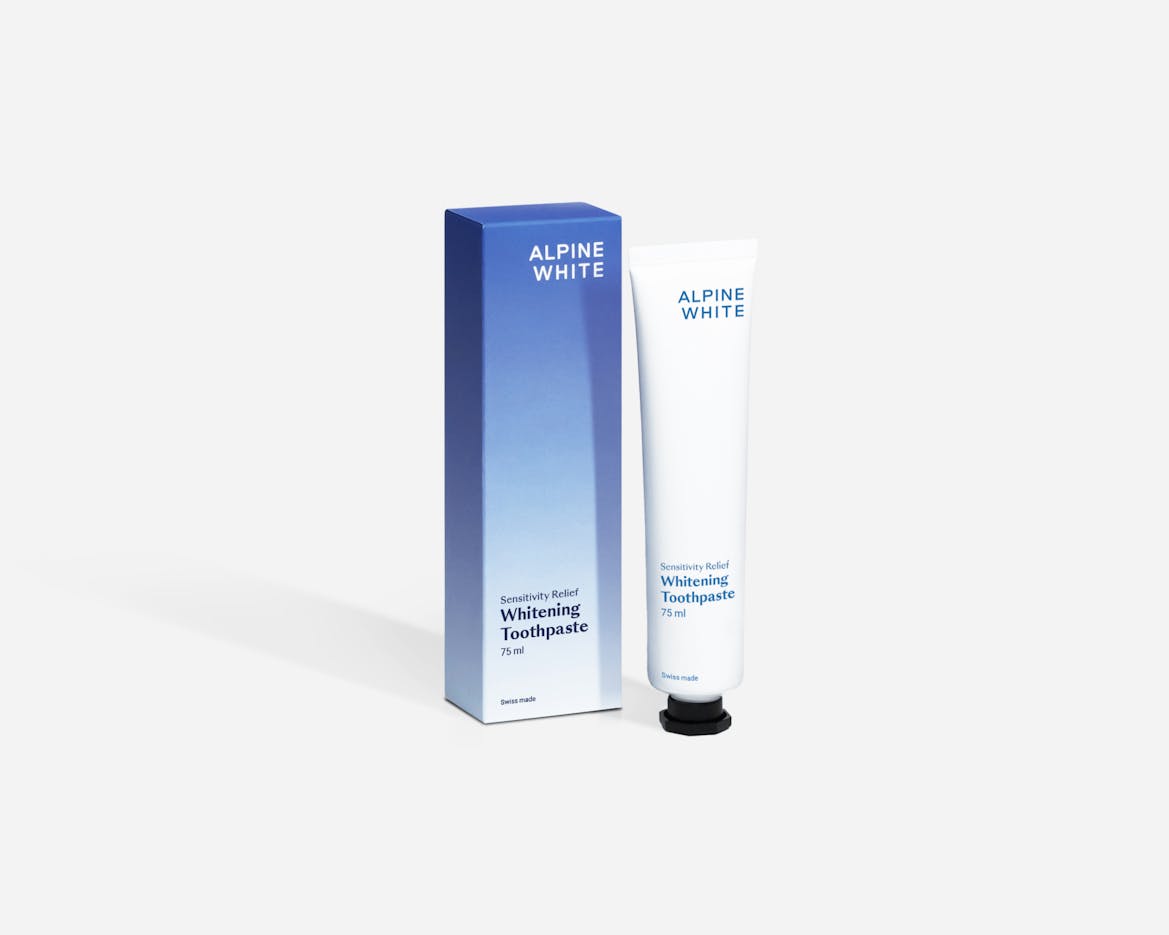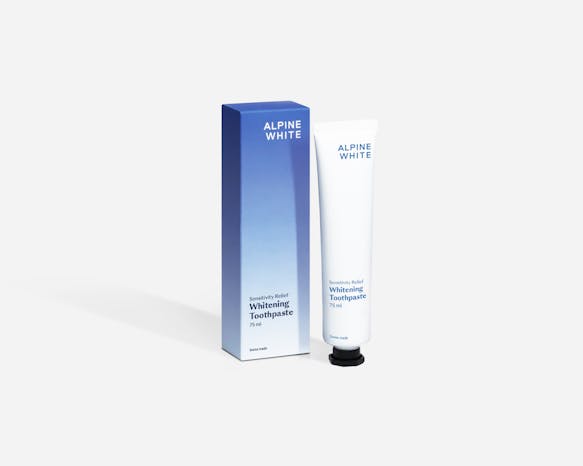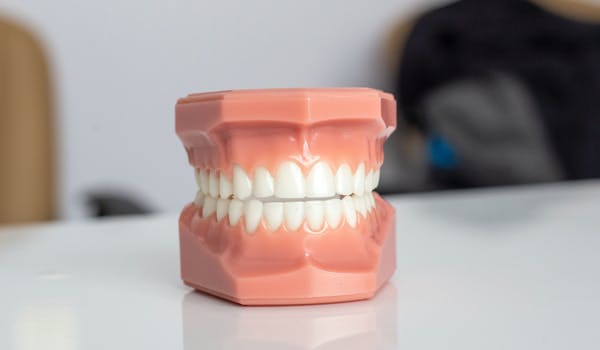Sensitive teeth: What should you do?
You can hardly wait and take a big spoonful of your favourite ice cream. But instead of an enjoyable "Hmm...", your teeth suddenly hurt. You want to spit the ice cream out or swallow it as quickly as possible.



This reaction of the teeth to cold is absolutely normal. But what if your teeth start hurting at the first sip of a cold drink or a blast of cold air?!
If the teeth are hypersensitive, even harmless stimuli such as sour foods, hot foods, cold foods or different kinds of drinks will trigger a toothache.
Although the pain usually goes away right away, you should not simply ignore it. Such teeth are also called sensitive teeth. Anyone can be affected by sensitive teeth.
What does tooth sensitivity mean?
In dental practice, we also speak of dentin hypersensitivity when teeth are sensitive to pain. Exposed tooth necks cause hypersensitivity because there is a gum recession. The neck of the tooth forms the transition between the crown and the tooth root. This transition area should normally be covered by the gums. However, when the gums recede, the sensitive teeth’ neck is exposed. This means that temperature stimuli are transmitted much more quickly to the inside of the tooth.
Causes of painful teeth
Sensitive teeth usually result from erosion of the enamel - the outer layer of the tooth - or from receding gums.
These processes expose the underlying dentin, the tooth bone. Thousands of microscopic fibres called dentinal tubules run through the dentin and lead to the centre of the tooth where the dental nerves are located. These fibres register the temperature stimuli that damage the tooth nerve over a long period, causing pain.
This can happen simply by using the wrong toothbrushing technique. That is, by strongly pressing on or scrubbing the toothbrush or by using a strongly abrasive toothpaste. But other causes that lead to stomach acid getting into the mouth can also cause erosion of the tooth enamel. This also applies to the excessive consumption of acidic foods and drinks.
However, tooth pain can also be caused by other issues, such as cracked teeth, a worn filling or gum disease.
Teeth sensitive to cold
If the tooth is particularly sensitive to cold and heat, it usually has to do with the canals described in the previous section. Pain stimuli triggered by cold or heat can run through the exposed canals, stimulate the nerve and thus cause short, sharp pain in the affected teeth. In extreme cases, the teeth are even sensitive to a brief touch.
Exposed tooth necks
Normally, only the crown of the tooth is visible. If this is not the case, it is a case of exposed necks of teeth, which can lead to constant pain and hypersensitivity. In this case, treatment is usually unavoidable.
The crown of the tooth is protected by hard enamel, which does not allow external stimuli such as heat or cold to pass through. Underneath the hard enamel comes the dentin. If the protective layer is damaged, this can lead to a tooth that is sensitive to pain.
Exposed tooth necks are often caused by periodontitis. This is when the health of the teeth is attacked by poor oral hygiene and bacteria. This eventually leads to inflammation of the periodontium. The consequences are swelling and redness of the gums. As a result, the tissue retreats from the necks of the teeth, which can lead to sensitive teeth.
The reason for this is tooth erosion. The main factors here are also the wrong brushing technique when brushing teeth, toothpastes that are too abrasive or acidic drinks (acid-induced tooth enamel erosion).
Teeth that are very sensitive to pain after tooth cleaning can also indicate an incorrect brushing technique. In our article on teeth cleaning, you can find out how to brush your teeth properly to avoid sensitive teeth.
Sensitive teeth due to tooth decay
Pain can also be caused by advanced tooth decay when it has already bored deep into the tooth. Teeth grinding or poor oral hygiene can also cause exposed necks of teeth.
Under the tooth crown and adamantine, the dentin is also not exposed but is surrounded by the gums. If the cause of tooth sensitivity is receding gums (gum recession), this is either due to incorrect brushing technique when brushing or incorrect stress on the teeth.
Gingival recession can also be the result of periodontitis. In this case, inflammation of the periodontium causes bacterial plaque to build up, causing the gums to recede.
When plaque and tartar on the teeth cause the gums to recede, it can destroy the bony support of the tooth and cause pain. To treat gum disease, your dentist may perform a deep cleaning of the teeth called abrasion or scaling, which removes tartar and plaque below the gum line.
Prophylaxis for sensitive teeth
Thorough dental care is the basis for healthy and pain-free teeth. It is important to brush your teeth regularly, twice a day for at least two minutes. The spaces between the teeth should also be cleaned daily with dental floss and the tongue should be cleaned with a tongue scraper.
Care should also be taken not to apply too much pressure on the toothbrush. Hence, you should use a soft-bristled toothbrush to not further harm sensitive areas. A desensitizing toothpaste or fluoride toothpaste can also be used to support your dental health.
Immediate help and treatment for painful teeth
For permanently hypersensitive teeth, immediate help is usually needed in the form of an assessment by a professional such as a dentist. Once the cause has been identified, treatment is often possible.
If the tooth necks are exposed and this is the reason for the sensitivity, it is possible to seal the dentin channels that come to the tooth surface with fluoride varnishes or lasers. However, sealing is only optimal if there are no caries.
Special synthetic materials, so-called dentine glues, are also suitable for this purpose. If your tooth root has lost gum tissue, a small amount of gum tissue can be taken from elsewhere in your mouth and attached to the affected area. This is called a gum graft and can protect exposed roots and reduce sensitivity. Exposed root surfaces can also be treated by applying adhesive resin to the sensitive root surfaces.
Moreover, if your sensitive teeth are causing intense pain and other treatments are not effective, your dentist may recommend root canal therapy - a procedure to treat problems in the soft core of the tooth (pulp).
However, having regular check-ups with your dentist is important to control your oral health.
The right dentistry products
One option is to use special toothpaste for sensitive teeth. This can relieve pain and have a preventive effect. In particular, toothpastes with high abrasion should be avoided for sensitive teeth. Fluoride gels, on the other hand, are good helpers to strengthen the enamel. If you want to use mouthwash, you should choose an alcohol-free mouthwash as it is more suitable for sensitive teeth.


Reduces tooth sensitivity while gently restoring your teeth's natural whiteness. Swiss made.
Alpine White products for sensitive teeth
With Alpine White, you don't have to give up a white smile despite sensitive teeth. We offer whitening products and dental treatments for your optimal oral health. With our Sensitive products - such as Whitening Strips Sensitive or Whitening Toothpaste Sensitivity Relief you can achieve teeth whitening despite sensitive teeth. The bleaching products are based on a clinically proven whitening formulation. In addition, our products remineralise your tooth enamel to relieve existing tooth sensitivity. The antioxidants in the products fight gingivitis. So you have healthy teeth with products that are formulated in Switzerland.


Get your teeth's natural whiteness back with our extra-gentle Sensitive Teeth Whitening Strips. Visible results in just 3 days – perfect for special occasions. 7 treatments included (7x 2 strips).


